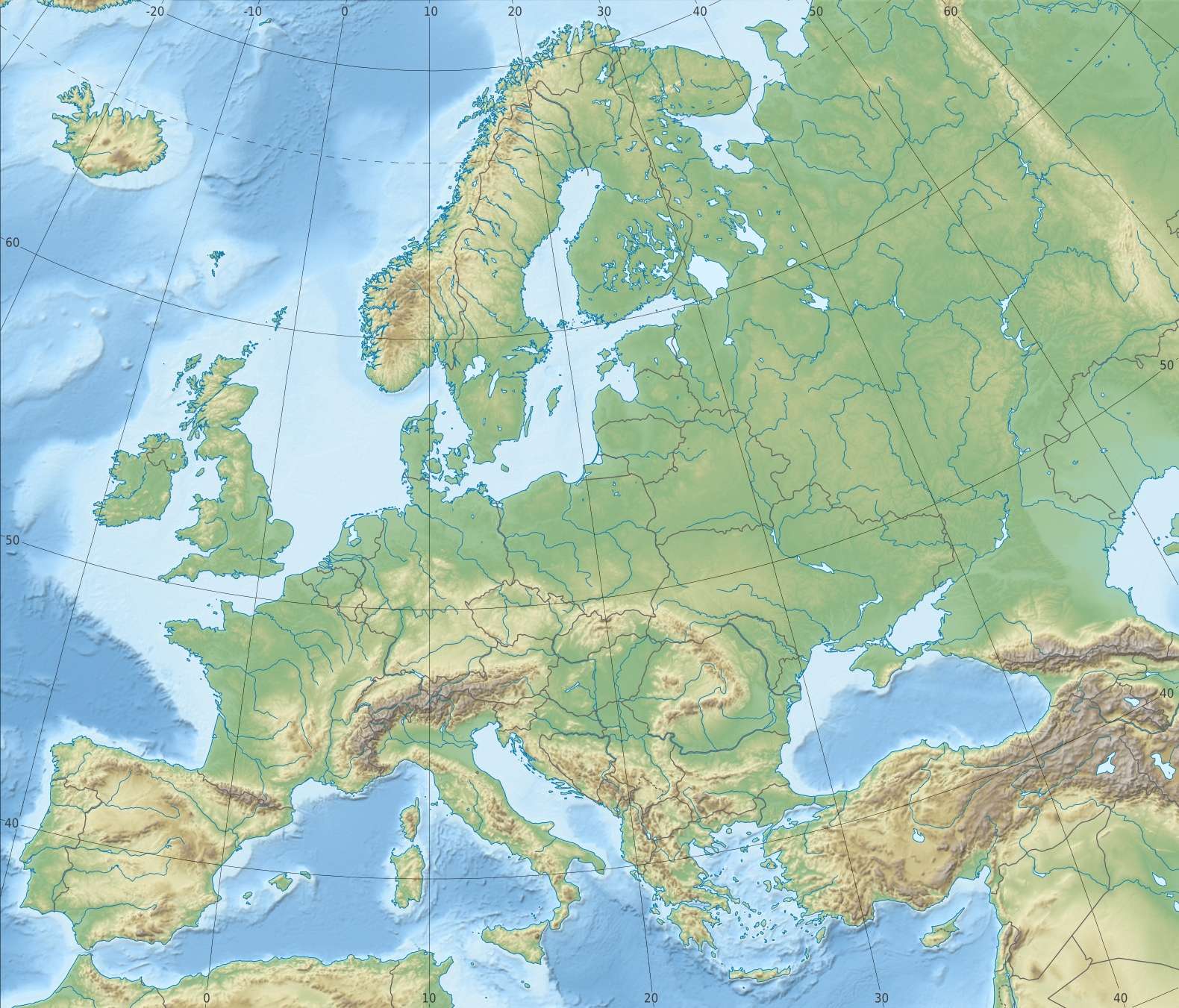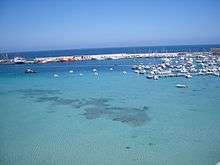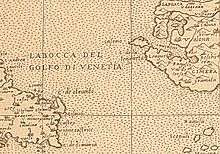Strait of Otranto
The Strait of Otranto (Albanian: Ngushtica e Otrantos; Italian: Canale d'Otranto; Croatian: Otrantska Vrata) connects the Adriatic Sea with the Ionian Sea and separates Italy from Albania. Its width at Punta Palascìa, east of Salento is less than 72 km (45 miles; 39 nautical miles).[1] The strait is named after the Italian city of Otranto.
| Strait of Otranto | |
|---|---|
 Strait of Otranto | |
 Map showing the location of the Strait of Otranto | |
| Coordinates | 40°13′10″N 18°55′32″E |
| Basin countries | Italy, Albania |
| Average depth | 18 m (59 ft) |

History
Since ancient times the Strait of Otranto was of vital strategic importance. The Romans used it to transport their troops eastwards. The legions marched to Brundisium (now Brindisi), had only a one-day sea voyage to modern Albania territory and then could move eastwards following the Via Egnatia.

World War I
During World War I, the strait was of strategic significance. The Allied navies of Italy, France, and Great Britain, by blockading the strait, mostly with light naval forces and lightly armed fishing vessels known as ‘drifters', hindered the cautious Austro-Hungarian Navy from freely entering the Mediterranean Sea, and effectively kept them out of the naval theatre of war. The blockade was known as the ‘Otranto Barrage’.
However, the barrage was notoriously ineffective against the German U-boats operating out of the Adriatic, which were to plague the Allied powers for most of the war throughout the Mediterranean.[2]
After the fall of the Iron Curtain
In 1992, Albania and Italy signed a treaty that delimited the continental shelf boundary between the two countries in the strait.
In 1997 and 2004, nearly 100 people lost their lives trying to illegally cross the strait following the 1997 unrest in Albania and poor economic conditions in the Tragedy of Otranto and the Karaburun tragedy.
In 2006, the Albanian government imposed a moratorium on motor-powered sailing boats on all lakes, rivers, and seas of Albania to curb organized crime.[3] The only exemption to the rule are government owned boats, foreign owned boats, fishing boats, and jet boats. In 2010, the moratorium was extended for 3 more years, until 2013.
See also
| Wikimedia Commons has media related to Strait of Otranto. |
- Otranto Barrage
- Otranto Raid
- Battle of the Strait of Otranto (disambiguation)
- Karaburun tragedy
References
- Frank K. McKinney (2007). The Northern Adriatic Ecosystem: Deep Time in a Shallow Sea. Columbia University Press. p. 29. ISBN 978-0-231-13242-8. Retrieved 6 March 2013.
- First World War - Willmott, H.P., Dorling Kindersley, 2003, Page 186
- "Archived copy". Archived from the original on 2011-07-06. Retrieved 2011-02-25.CS1 maint: archived copy as title (link) Council of Ministers of the Republic of Albania, www.keshilliministrave.al, 10 August 2006.